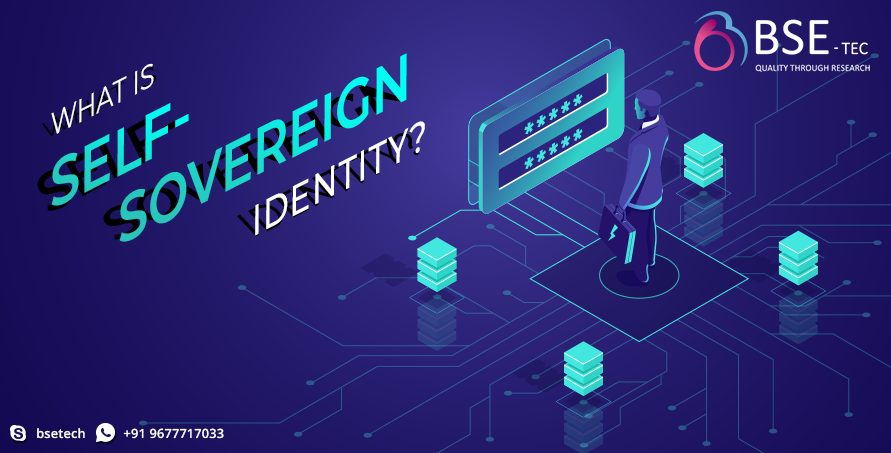What is Self-Sovereign Identity?

We live in a complex digital world where we require to provide our private data for verifying our identity. There are scenarios where we get stacked up with large amounts of personal questions while applying for new services. For example, what is your date of birth, birthplace, address, phone number, and bank account number, do you own a house? Do you own a valid driving license etc?., In today’s digital world, where personal data is constantly being collected and shared, self-sovereign identity (SSI) has emerged as a groundbreaking solution. SSI gives power to individuals with full control over their data and personal information and manages it safely and securely. This blog explores, the key principles, benefits, and how it is all set up to revolutionize the way we interact with digital systems.
Self-Sovereign Identity
Self- sovereign Identity (SSI) refers to an identity management system where the user has complete control over their private data and personal information. Unlike traditional Id management where the data are stored in centralized storage. The SSI is stored in blockchain making it decentralized and transparent.
Key Principles of Self-Sovereign Identity
- Ownership and Control
In traditional Identity management, a certain organization or government body will have full control of the user data, whereas in SSI the user has full control over their information where they can limit data access.
- Portability
Unlike the traditional verification process, SSI allows individuals to digitally store their data and personal information in digital wallets. This allows individuals to carry their digital identity across different platforms and services without the need for repetitive registration or verification.
- Interoperability
Self-sovereign identity reduces the level of bureaucracy (centralization) and increases the processing speed of the institutions thus enhancing the interoperability among various departments and organizations.
Benefits of Self-Sovereign Identity
- Privacy Protection
Storing the user’s private data in decentralized ledgers eliminates the risks and security issues like data breaches and unauthorized access.
- Enhanced Security
With SSI, digital identities are protected through advanced cryptographic techniques, making it difficult for malicious actors to manipulate or forge identities.
- User Empowerment
Since SSI provides, full control to the users, it empowers them to participate in digital transactions on their own terms.
- Streamlined Identity Verification
SSI simplifies identity verification processes, eliminating the need for repetitive paperwork and reducing administrative burdens for both individuals and organizations.
Real-World Applications of Self-Sovereign Identity
- Digital Identity Verification
SSI can streamline identity verification processes for various applications, including online banking, e-commerce, and healthcare, ensuring secure and efficient transactions.
- Decentralized Identity Systems
SSI facilitates users to store their data in decentralized blockchains and verify their data with selective disclosure and zero-knowledge proof. Governments and Organizations can make use of such decentralized identity systems to leverage the power of SSI facilitating full control of their data to individuals.
- Trusted Credentials
SSI allows for the secure storage and sharing of digital credentials, such as academic degrees or professional certifications, eliminating the need for paper-based records.
Looking for a blockchain development company to implement a self-sovereign identity to enhance security and privacy in your institute or organization? Get in touch with BSEtec now.
Did you find this article useful? Let us know by leaving a comment below, or join us on Twitter and Facebook.




